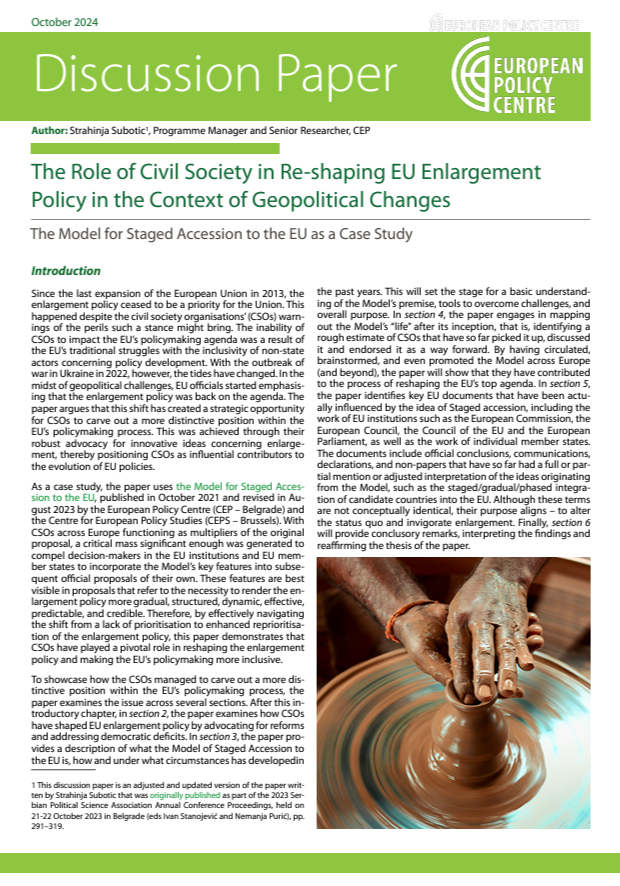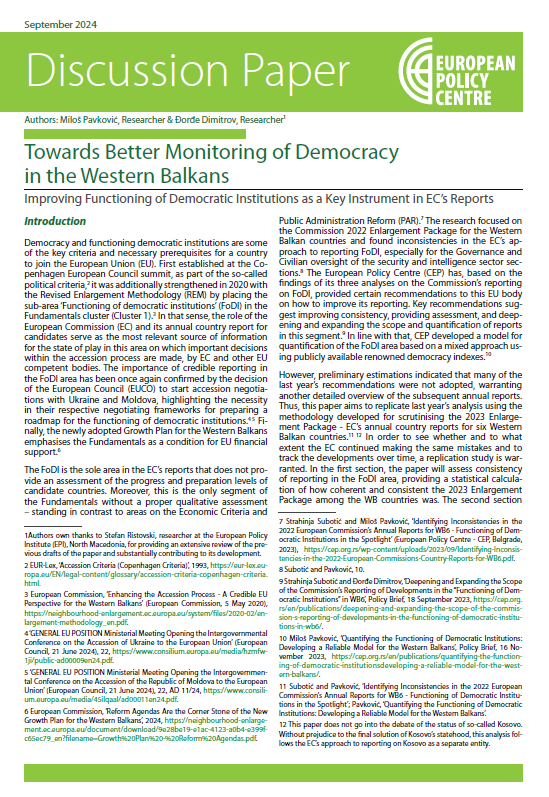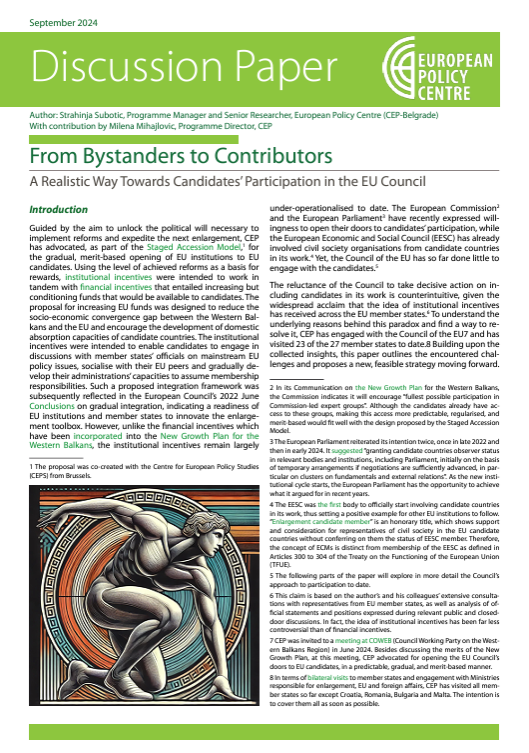Headquarters: Svetog Nauma 7, 11000
Office address: Đorđa Vajferta 13, 11000
Phone:: +381 11 4529 323
This paper examines the impact of the Staged Accession model on the EU’s budget, with a focus on the Western Balkan (WB) countries. It reveals that the total cost of enlargement to the Western Balkans would amount to €35 billion over a single Multiannual Financial Framework (MFF) or €5 billion annually. Although this would represent a 7.5-fold increase in expenditures on the EU’s side compared to IPA III, the annual burden on the member states’ GNI would amount to only 0.014% and 0.026%, or, depending on the member state, between €1.6 and €10.8 per capita.
The burden of EU enlargement to the Western Balkans would be even lower in practice if mandatory contributions of new member states are taken into account. After subtracting the full contributions of the WB6, the post-accession costs would amount to around €26 bn, or €3.76 bn on an annual level. Put into the perspective of the €1.8 trillion of combined funds of the MFF and the Next Generation EU, these amounts appear relatively negligible. The gradual accession process also softens the budget impact, as the countries are unlikely to progress from one stage to another or join the EU all at once, allowing the EU more time to prepare its budget for the newcomers. In that context, the original logic of the Staged accession model of gradual financial assistance and incentives is both needed and feasible.
To ensure effective operationalisation, the Template’s original funding progression was adjusted as it did not account for the dynamics of introducing compulsory contributions to the EU budget. The paper, therefore, cross-analyses three different financial variants for distributing funds and determining contributions from the Western Balkan countries at each stage of the accession process. The original Template suggested candidates receive 50% of conventional membership funding in Stage 1, followed by 75% in Stage 2, ending with 100% in Stage 3 when membership is achieved. The revised scheme stipulates that candidates would be able to receive up to 40% of conventional membership funding in Stage 1, followed by funds up to 60% in Stage 2, with standard full funding upon acquiring membership. Considering this adjustment, the paper suggests that the simplest, most straightforward option in terms of implementation would be to pursue Variant A, which prescribes full contributions to the EU budget upon acquiring the membership, as has always been the case.
The more advanced one, and most advantageous for candidates, would be Variant B, which stipulates a gradual increase of required contributions even after attaining membership, leading to full contributions in Stage 4. It effectively balances the urgency of boosting reforms and economic convergence with the need to compensate the candidates for the Stage 3 limitations.
Finally, introducing gradual contributions already during the pre-accession stages, as per Variant C, would be the least favourable one from the Western Balkans’ perspective but could nevertheless be a compromise to convince enlargement sceptics to support the rationale behind the Staged Accession model. Opting in favour of any of these variants would represent a breakthrough in how the EU prioritises enlargement.


